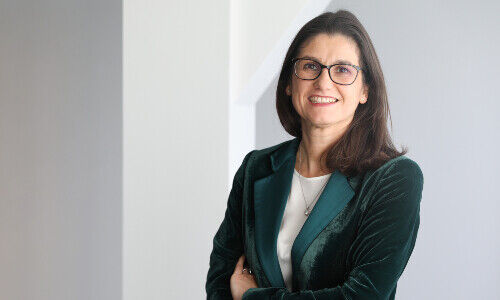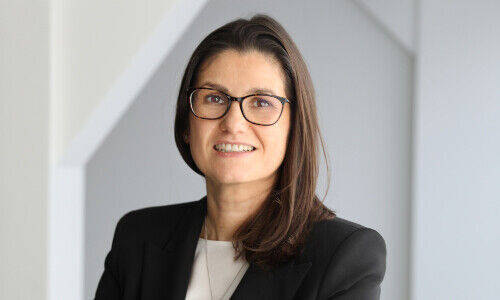Last month, Pictet appointed a new head for the German-speaking Swiss market, which is increasingly important for the Geneva-based institution. Given the epochal events in Zurich, a new boss is required.
The Pictet brand and the private bank have been synonymous with Geneva since their founding in 1805, even though it has long been generating a large part of its income outside of its historical home, with half coming from asset management. «Zurich has become our second home market,» Pictet's Verena Gross tells finews.com in an interview.
«A large part (Pictet does not disclose exact figures) of the approximately 600 billion francs ($675 billion) in Pictet's client assets under management are managed from the city on the Limmat,» explains Gross who took over as head of Wealth Management for German-speaking Switzerland last month. She succeeds Victor Aerni, now responsible for the Asian market from Singapore.
From Goldman Sachs to Pictet
As is typical with a long-established bank like Pictet, promoting internally is preferable when it comes to personnel issues, which is the case with Gross. She knows Pictet very well, having worked for the bank for 13 years after moving from Goldman Sachs to Pictet in Zurich. The change from an American firm to a Swiss private bank could hardly have been more different, she recalls.
In contrast to her former employer which is seen as a giant machine, the signatures of the bank's seven partners are evident in all processes at Pictet, Gross observes. «A culture of long-term thinking dominates, but also of a closeness and a commitment manifesting itself beyond sales targets,» explains the banker. «I've never been told what sales I should achieve,» she says and sees this as the foundation for looking after customers as individually as possible and according to their needs.
Turbulent Times
This is a particularly opportune moment. Like other well-established and solid Swiss financial institutions, Pictet is benefitting from the turbulence at Credit Suisse. «It would be dishonest to claim the uncertainty of Credit Suisse customers had passed us by without a trace,» says Gross. As noted by financial market observers, considerable sums of money flowed to Pictet in recent months.
Gross says although «Pictet is doing well,» she is challenged in her new role, which involves retaining customers over the long term while opening up other markets from Zurich in addition to German-speaking Switzerland.
Open to Additional Advisors

(Image: Pictet)
Pictet employs around 200 people in Zurich, of which 60 or so work in private banking for Swiss customers in traditional wealth management. Another 50 people look after markets such as the US, Latin America, the Middle East, and Europe from Zurich.
«The door is open,» to additional customer advisors, says Gross. But here too, Pictet doesn't have a fixed size but will hire opportunistically. In times of crisis, you are more likely to find good people because the will to change is greater. «Pictet acted counter-cyclically in this regard during the financial crisis of 2008,» notes Gross.
Financial Market Upheaval
After the recent upheavals in the Swiss financial industry, which raised many questions from Pictet's customers, Gross is now facing very challenging times. Swiss financial institutions have to show they're trustworthy, and that the most recent headlines locally and internationally show not an industry-wide problem, but an individual one.
Nonetheless, Gross assumes many wealthy clients will soon be asking themselves how they want to organize their financial affairs for the future. There are rumblings in the financial industry that there will be additional movements in the industry, not least with the only globally systemically relevant Swiss bank occupied with the challenge of integrating its former competitor.
Three Priorities
In her new role, Gross has set out three priorities. First, to increasingly offer investment solutions to clients with the help of relevant Pictet specialists, especially for the next generation of customers. Many have new or different requirements, whether in technology, alternative investments, or sustainability and impact investing.
Secondly, Gross wants to make the company more attractive as an employer in German-speaking Switzerland. Finally, as boss, she wants to exemplify the internal culture of the partner-managed bank, which was one of the reasons why Gross switched from an American conglomerate to the Pictet partnership 13 years ago.




































